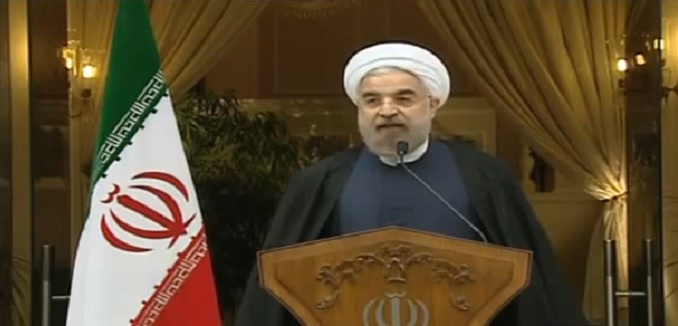Obama administration officials continued to scramble last week to contain the fallout from recent statements by Iran’s Foreign Minister Mohammed Javad Zarif and President Hassan Rouhani, in which the officials respectively denied that Iran had made key nuclear concessions under a recent interim agreement and foreclosed what are widely believed to be minimal rollbacks necessary to secure a comprehensive nuclear accord. CNN last Wednesday aired an interview with Zarif in which he explicitly accused the White House of misleading Americans into believing that Iran had committed to dismantling some of its centrifuges under the Joint Plan of Action (JPA), and last Thursday the cable news network aired parts of a separate interview with Rouhani in which he flatly ruled out ever dismantling any centrifuges. Fareed Zakaria, who was CNN’s host for the Rouhani interview, described the Iranian president’s stance as a diplomatic “train wreck” and worried that it will be “very hard [for Iran] to walk back from as absolutist a position.” White House Press Secretary Jay Carney last Thursday brushed off the Iranian comments as spin aimed at a “domestic audience,” prompting Fox News correspondent Ed Henry to push back.
Pushing back against the White House’s suggestion that Iran’s tough rhetoric on the international nuclear deal is only meant for a “domestic” audience, Fox’s Ed Henry asked Press Secretary Jay Carney Thursday, “CNN is broadcast outside of Iran, right?” “Yeah, I’ve seen it here,” Carney deadpanned in response.
After the chuckles from the other reporters in attendance subsided, Henry pushed his point, saying that Iranian President Hassan Rouhani’s comments to CNN’s Fareed Zakaria about his country’s refusal to destroy existing centrifuges can’t possibly be meant for “domestic political consumption” only. “Aren’t they also sending a message to you, to the president, to the U.S.?” he asked.
It seems straightforward that, inasmuch as Iranian leaders are declaring to domestic audiences that they will refuse to make critical concessions as a matter of national pride, it will be more difficult for them to make critical concessions. The Associated Press last week quoted Gary Samore, a former top arms control advisor for the Obama administration, predicting that “we’re in for a rolling series of extensions” rather than a successful negotiated accord. The scenario may see Iran repeatedly pocketing financial concessions during the interim period without committing to the steps necessary to verifiably put its atomic program beyond use for weaponization.
[Photo: Foreign Media News 2014 / YouTube]




